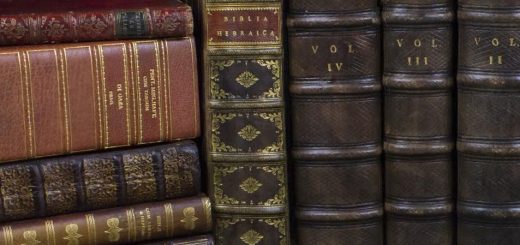The Holy Jews of Yerushalayim

by Asher Brander
We have rented their upstairs apartment and they are our super-gracious hosts.
He is a pashute baalabos (a simple working man) – the gabbai of a swift and small shul that runs like clockwork. She hails from Buffalo, grew up on a farm, and has been in Israel for over 50 years; He is a relative new-comer of about 48 years from Glasgow, Scotland – who has shed his kilts, but still sounds the part.
He saw action in the YK war and beyond. On average, during his tour of duty during the war he clocked 2000 kilometers a week looking for Egyptian paratroopers in the Sinai Desert. They got ’em all.
A few nights ago, I walk into a scene out of the 1950’s – he is in the kitchen – listening to the news by the radio. It is not great news. False rocket fire alarms in Mevasseret and Beit Shemesh. By now, practically the whole country knows the feeling.
Simple and smart, he talks about just opening both our eyes to see the miracles all around us. He means it. I probe and ask what he has in mind:
“If only we learn the lesson of Parshas Balak – that which Bilaam and Balak recognized, that our vulnerability and strength — is found in recognizing the Hashgacha that is all around. This part of the world is not an easy place to live in. My grandchildren, who live in the Golan, go out to their porch and watch the fireworks from the east (the internecine strife in Syria between the gov’t and the opposition). HaRav L. wishes both sides much hatzlacha for many years to come”. He smiles and gets to his point:
“So you have to understand what has been accomplished here – in a very dangerous part of the world – is a miracle, a constant miracle- it’s all a miracle.”
He revels in the many stories of his grandchildren – those who are off in Jericho and near Gaza doing army service. He shares of his son and grandson – paratroopers who jumped out of a plane together; of his son who was asked to attend officer school – but refused until he was given an extra 4 months in the yeshiva; of his son in Gaza who needed fresh laundry and called Saba – who went with Savta to deliver fresh laundry and other supplies. “Did you ask permission”, I queried?
“This is Israel – you don’t ask – you just do.”
His talk of hashgacha and the Divine hand in the daily come neither from a preachy place nor from a silver spooned life.
Twelve years ago, he lost a son, Gidon, in Operation Defensive Shield (2002). A plaque from his unit [Gedud 51] sits in our (rented) living room and tells the sad story of camaraderie and love. That war has not ended for them.
The living room is also full of birds (paintings and sketches, that is) – the product of the Tuesday art therapy group that Mom attends; it is an exclusive club – a group limited to mothers who have lost their children in battle.
Why birds? Perhaps it is because they sing — no matter what. The faithful Jew sings Shir Hamaalos upon the return to Zion and Shir HaMaalos from the greatest depths. Jews like birds, possess the power of Shira. Jews like birds, fly high. The Master of the Universe assured our eternity by not cutting the bird (cf. Bereishis 15, Rashi) and using sweet words of affection, calls us “his dove”.
Perhaps, most significantly Jews are loyal to their Mate – and thus a bereaved father can sit in a kitchen extolling his Creator and chiding the theologically blind who do not see the obvious.
May Hashem bring all His Holy birds back to His Rebuilt Nest in Jerusalem (cf. Zohar) and may we merit to sing the great redemptive new song, the shir chadash of geulaseinu – redemption from rockets, redemption from hatred and redemption towards holiness.
Rabbi Asher Brander is the Founder of the LINK [Los Angeles INtercommunity] Kollel and Shul, Rebbe at the Bnos Devorah Girls High School and author of Teachings: In Depth Reflections on the Parsha




A beautiful & timely post. May Hashem open all our eyes to see the miracles unfolding in the Holy Land. am Yisroel Chai v’ kyam.
I hope readers in the US and other places outside Israel appreciate from this piece the very different reality we Israelis face as compared to that of Galut (Exilic) Jews and how this reality greatly affects how Israeli Jews view the Torah and Emunah in a REAL, down to earth way that Galut Jews find difficult to understand.
Rabbi Brander…Thank you for the beautiful picture you painted.
Mi K’amcha Yisroel!